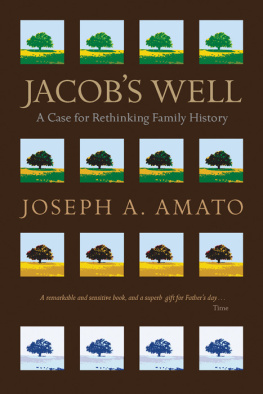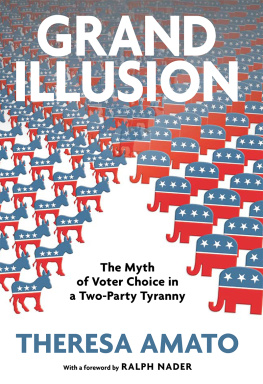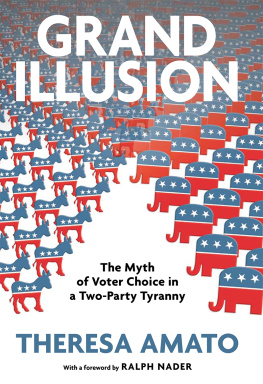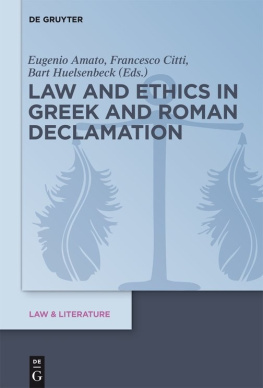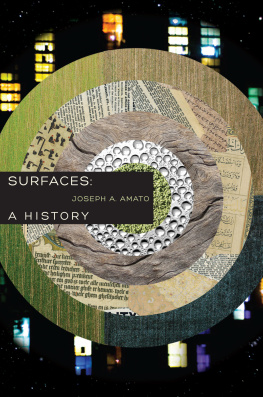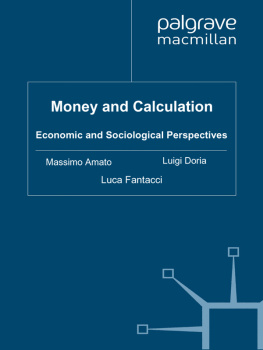JACOBS WELL
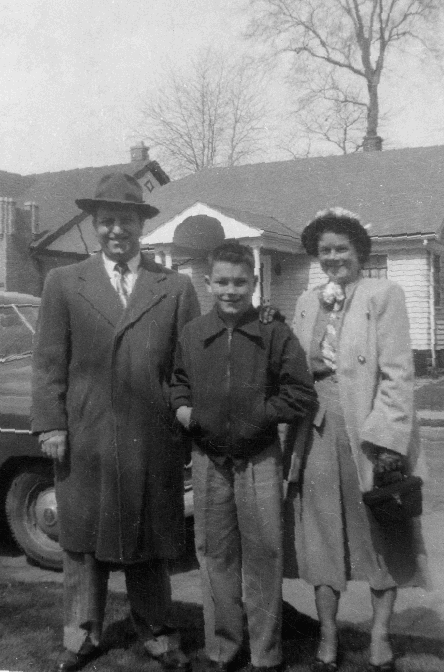
Joseph A. Amato
Jacobs Well
A Case for Rethinking Family History

Minnesota Historical Society Press
2008 by the Minnesota Historical Society Press. All rights reserved. No part of this book may be used or reproduced in any manner whatsoever without written permission except in the case of brief quotations embodied in critical articles and reviews. For information, write to the Minnesota Historical Society Press, 345 Kellogg Blvd. W., St. Paul, MN 551021906.
www.mhspress.org
Book design: Wesley B. Tanner/Passim Editions
The Minnesota Historical Society Press is a member of the Association of American University Presses.
Manufactured in the United States of America
10 9 8 7 6 5 4 3 2 1
A The paper used in this publication meets the minimum requirements of the American National Standard for Information SciencesPermanence for Printed Library Materials, ANSI Z39.481984.
International Standard Book Number
ISBN 13: 978-0-87351-613-6 (cloth)
ISBN 10: 0-87351-613-3 (cloth)
Ebook ISBN: 978-0-87351-675-4
Several passages in this book that discuss the authors immediate family first appeared, in altered form, in Bypass: A Memoir, by Joseph A. Amato, 2000 Purdue University Press. Reprinted with permission. Unauthorized duplication not permitted.
Library of Congress Cataloging-in-Publication Data
Frontispiece: The author and his parents, Joseph and Ethel Amato, about 1950.
To my parents and grandparents, and their parents and grandparents
Immigrants and migrants all
Contents
PREFACE
Family History, A Way to Know Our Selves and Our Times
F amily is the well of self. It makes childhoods, imprints memories, and offers models for a lifetime. Doing family history is a way to investigate its powers, to take control of personal history. It provides a distinct type of self-knowledge, which is timely and even indispensable in this age of abstractions, ideological battles, and mass culture. As we set off on this quest for truth, variety, and individuality, family history shows us the specific historical creatures who shaped our parents and their parents, making us see ourselves, too, as actors in an immediate, lived historyand this is worthy of reflection.
In this book I seek out fresh themes and approaches for rethinking family history. I do this by example, exploring these ideas while writing a history of a typical multi-ethnic, undistinguished, and poor North American familymy own, through seven generations. Though I concentrate on migrations and settlements, individual circumstances and fates, I find myself also recounting a national story of the poor, of the shift of the nations population from land to town to industrial city, and of the unprecedented transformation of material conditions, which took the majority of Americans from scarcity and necessity to abundance, leisure, and choice.
Jacobs Well: A Case for Rethinking Family History is a companion work to my recent Rethinking Home: A Case for Writing Local History. In the latter I proposed fresh approaches to local history, which has been largely left in the hands of its amateur practitioners . In this book, I seek to expand the historical imagination of those who wish to write family histories that have significance for national, economic, and social history.
There are challenges, of course. A family history can be limited by narrowness of subject, distorted by gaps of information and evidence, and constricted by the interests and imagination of its creator. Furthermore, family historians must take care that their ideals dont distort their histories. The family we live by today, placed at the heart of our values and sentiment, increasingly becomes synonymous with the nuclear family. We forget that families were not always composed of two parents and their children, they did not always exist in the same household, and they were dedicated to reproduction and economic survival rather than fostering individual emotions and happiness. Until roughly a century ago, the household was a work unit, necessary for survival in both countryside and town. And even with this in mind, it is easy to forget, when contending with sentiment and nostalgia, that variations in circumstances, environment, and institutions determined the stability and form of the family.
Only over the course of centuries, starting with the wealthy, has the family been transformed into a social institution that fostered the individual and the intimate person. Correspondingly, in contradiction to Christian faith and theology, the family evolved in popular belief and sensibility to become the principal unit of the afterlife. We once identified ourselves locally in terms of a specific place on earth and collectively in the Great Chain of Being, which vertically linked being from God, creator, to the smallest mite. But in the last hundred and fifty years or so, we have come to define ourselves not in place but in time, in what historian John Gillis calls the Great Line of Progress. As a consequence of this revolution in worldview, the family has its meaning not in a defining origin but in its democratic and progressive advance across time.
So as we discard the regressive search for noble origins and pure lineages, we come to know ourselves literally as the makers of our family and the definers of family tradition. We recognize that history is an active craft. The historian learns and makes as he proceeds. Moving back and forth between memory and research, fashioning and refashioning connections and contexts, and weighing and judging events, the historian simultaneously shapes narratives and deepens explanations. And as much as history serves as a medium for discovering the past, it also is, we confess, a means to invent it.
The academic study of the family, which took form in the last decades of the twentieth century, also rebuts mythic and stereotypic histories of the family. The discipline offers the family historian a comprehensive approach to the Western family. With a felicitous metaphor, historian David Levine, who traces the origin of the modern Western family to the Middle Ages, identifies the three composing strands of the family: the biological, the cultural, and the political. He argues that this triple helix of family, historically bonded in space and time in the Middle Ages, was thereafter subject as a form to historical contingency, variation, and mutation. While affirming the fundamental place of the family in human experience, those who study its development through time confirm that family is forever subject to societal, cultural, and political revolutions around itincluding those surrounding the contemporary American family.
Even though considerations of family history turn up throughout this book, its principal quest takes us on a different path. Its subject is the ineffable individual, the singular family, distinct and even opposing generations, specific locales, myriad conditions, and particular locales. As suggested by each chapters introductory head notes, I start my inquiry with questions and themes rather than theoretical problems and extended arguments. The first two chapters, which ask after the fate of one of my grandmothers and the source of the restlessness of the other, demonstrate both the role of grandparents as our main conduits to the past and the importance of using psychology when writing family history. Chapter 3 debates how far back the family historian should go in seeking origins as I query the meaning of the arrival of my Acadian family in a new land as prisoners and wards of the state. Chapters 4 and 5 show that families can be more about migration than settlement and that documents in obscure archives can help a historian narrate a familys search for homespecifically, up the slopes of Maine, on the poor land of New York, or on to the farms and towns of Wisconsin. Treasured family stories are the focus of Chapters 6 and 7, in which I seek to fathom one great-grandfathers death by rabies and contemplate the rise and fall of another immigrant great-grandfather, a man of relative prominence. In Chapter 8, the cousins stretch the story and form the cusp between family and society as I explore lives and cultures of mill-town immigrants who move to urban industrial Detroit. In the last chapter, I explore the union of my parents as urban villagers and their strong allegiance to family, city, consumption, and progress.

